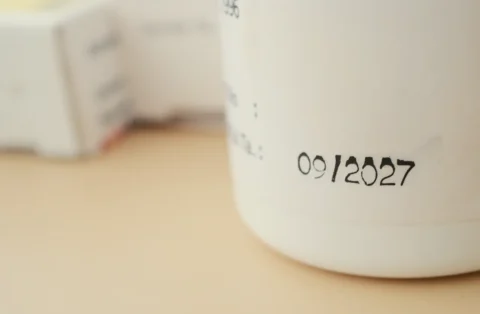What you’ll learn
We’ll explore what sobriety (or recovery) fatigue is, why it happens, and how to spot the signs, whether you’re recovering from alcohol or substance use. You’ll learn practical ways to care for yourself when recovery starts to feel like a grind. We’ll cover tips like giving yourself permission to rest, reconnecting with your “why,” leaning on support without shame, and knowing when it’s time to ask for extra help.
Recovery takes courage. It’s a journey of healing and rebuilding your life, step by step. But sometimes, the process itself can start to feel heavy. This part of the process is called “sobriety fatigue.” It’s the mental, emotional, and physical tiredness that comes from the ongoing effort of staying substance-free and reshaping daily life. And while it doesn’t always feel great, it’s a normal part of recovery to feel tired at different points in your journey.
Feeling tired doesn’t mean you’re failing. It means you’re human. Learning how to navigate these complicated feelings can help you understand what’s happening and also give you a good idea of when it’s time to reach out for support. While everyone’s road to recovery looks different, you don’t have to go through it alone.
What is sobriety fatigue?
Sobriety fatigue (sometimes called recovery fatigue) is that bone-deep exhaustion that can creep in during early recovery or even months or years in. It’s your body and brain recalibrating after functioning with alcohol, opioids, or other substances for so long.
Think of it this way: your nervous system has spent months or years attuning to the presence of a substance. When it’s suddenly gone (especially if you stopped abruptly or went “cold turkey”), everything needs to reset. That process takes a lot of energy. So, the tiredness you feel isn’t just “in your head.” It’s your whole system working hard to find a new normal.
This fatigue looks different for everyone. It can depend on:
- The substance you’re recovering from (such as alcohol, opioids, or stimulants)
- How long you’ve been using
- Whether you tapered or quit cold turkey
- Your overall health going into recovery
And while it’s completely normal, it’s also something you can work with and not just push through.
What sobriety fatigue feels like
Sobriety fatigue doesn’t always announce itself with a crash. Sometimes it’s a slow fade. You might feel less patient or more doubtful. Other times, you just feel really physically tired. These feelings of sobriety fatigue can happen at any time, during the first week of sobriety or even months after you’ve been in recovery.
You might notice:
- Frustration or even resentment about how much effort recovery takes.
- A pull to isolate, such as skipping therapy, avoiding support groups, or shutting down.
- Less motivation to stick with new routines you’ve developed.
- Low mood, trouble sleeping, or losing interest in things you once enjoyed.
- Feeling emotionally drained from managing stress and triggers every day
Think of it as burnout, but in recovery. These feelings aren’t signs you’re “doing recovery wrong.” They’re signs your brain and body are rebounding from a huge shift, whether you’re working through alcohol use disorder (AUD), opioid use disorder (OUD), or another form of substance dependency. And just like with any major life change, your system needs time to adjust. It also needs you to be kind to yourself during this process. (We’ll cover some tips for that, too!)
Why sobriety fatigue happens
Sobriety fatigue isn’t the same as withdrawal. It often appears later, months or even years in, when the “newness” of recovery fades. There are a few common reasons why it happens:
- Emotional wear and tear: Constantly monitoring your mood, triggers, and choices is exhausting. Recovery asks a lot of your emotional bandwidth. Making any major changes in your life can feel like a heavy load. Recovery is no different, but remember, you don’t always have to do it all yourself.
- High expectations: Sobriety doesn’t instantly “fix” everything. It’s common to feel surprised or even disappointed when old problems (relationship stress, anxiety, trauma) don’t vanish overnight. That said, it takes time to rebuild relationships or develop new ways of thinking about things. So, be kind and patient with yourself.
- Lack of balance: If recovery becomes your only focus, it may start to feel like a burden instead of freedom. It’s important to remember that you are a whole person and more than just your recovery process. Discovering new interests can be one of the most rewarding parts of your recovery journey.
- Social pressures: Re-entering places and environments where people knew you during active addiction can feel vulnerable. You shouldn’t have to prove your progress, but it’s normal to feel that pressure.
Being able to notice sobriety fatigue symptoms as soon as possible means that you can start making changes to the way you navigate your life now that you’re sober. Recognizing these patterns early gives you a chance to change course before burnout takes hold.
Is sobriety fatigue normal?
Yes! Burnout happens in all areas of life, whether it’s work, relationships, or personal growth. Burnout can happen at any stage, whether it’s a new relationship or an old job. It’s normal and dependent on so many different factors surrounding those areas. And just like these areas of life, you can also feel burnout at any point during your recovery process. This is normal, too. Recovery is demanding, personal, and deeply human.
And, just because you feel exhausted or frustrated doesn’t mean you’re failing. It simply means that you may need to adjust your approach to recovery and focus on balance.
If you’re feeling like you’ve hit recovery fatigue, know you’re not alone. Many people have faced it and have overcome it. The good news is that recovery fatigue is temporary. Once you recognize it, you can take steps to regain motivation and make sobriety feel more sustainable.
What are the symptoms of sobriety fatigue?
Whether you’re recovering from alcohol or substance dependency, sobriety fatigue symptoms can creep in slowly and sneak in quietly. These subtle symptoms can make you feel disconnected from your progress, unmotivated, or even resentful toward the recovery process.
Sobriety fatigue can look like:
- Feeling unmotivated, stuck, or resentful toward recovery
- Trouble focusing or brain fog
- Sleep problems, chronic tiredness, or stress-related aches
- Pulling away from meetings, therapy, or healthy routines
- Thinking more about using, even if you don’t want to relapse
Spotting these signs early can help you make small changes before things feel overwhelming. If any of these feel familiar, it may be time to take a step back and focus on rebalancing your recovery journey.
How long does sobriety fatigue last?
There’s no universal timeline for how long sobriety fatigue can last. Everyone’s recovery journey is different. For some, fatigue lifts in a few weeks. For others, it lingers for months, especially if your body is still healing from the physical impact of long-term substance use.
Factors that can influence how long it lasts include:
- Your physical and mental health
- The type of substance (alcohol, opioids, etc.) and how your body processes withdrawal
- Whether you had medical support during detox
- How much you’re able to rest and rebuild your energy
It’s important to remember that sobriety fatigue isn’t punishment. It’s your body saying, “I’ve been through a lot, and I need care.” And that’s okay. It doesn’t mean you just have to power through and risk burning yourself out further.
How to manage sobriety fatigue
If you’re feeling stuck, drained, or unmotivated in recovery, it’s important to know that this feeling is temporary.
The key is to adjust your approach, focus on balance, and remind yourself why you started. Here are a few different strategies to try to help you better manage sobriety fatigue.
1. Give yourself permission to rest
Recovery isn’t about being “on” all the time. Take breaks, get sleep, and recharge. Rest is part of healing.
- Give yourself permission to pause and rest without guilt.
- Identify what helps you recharge, whether it’s meditation, time outdoors, or simply doing nothing for a while.
Recovery isn’t a sprint, and rest isn’t laziness. Learning to listen to your body is one of the first things that can help you when looking for how to combat sobriety fatigue. You are giving yourself permission to acknowledge that you need a break. Your worth isn’t tied to productivity.
2. Revisit your goals
Sometimes, burnout happens when we’re hard on ourselves. If you’re feeling exhausted, it may be time to reevaluate what success in recovery looks like.
- Are you being too hard on yourself? Recovery isn’t about perfection. Even the slightest bit of progress is progress.
- Are you trying to do too much at once? It’s okay to take things one step at a time.
- Are your goals aligned with what truly makes you happy? Sobriety should enhance your life, not feel like a constant struggle.
Try shifting your mindset from “I have to do this” to “I get to do this” and remember recovery is an opportunity, not a punishment.
3. Find joy beyond recovery
One of the biggest reasons people experience sobriety fatigue is that they focus so much on staying sober that they forget to build a life they enjoy.
Sobriety isn’t just about what you’re avoiding. It’s about what you’re creating.
- Explore new hobbies and interests that bring excitement and fulfillment.
- Reconnect with things you loved before addiction, like sports, music, art, or travel.
- Try something totally new. Taking up a new skill can re-energize your sense of purpose.
Ask yourself, “What did I enjoy before? What are the little things I can do that make me feel happy?” It can be as simple as going for a walk outside, listening to music, or cooking a nourishing meal. These aren’t distractions separate from your sobriety. They’re part of rebuilding your life and finding joy along the way.
4. Stay connected
When recovery starts feeling overwhelming, one of the best things you can do is reach out for support. No one gets through this alone, and you don’t have to, either.
- Talk to a therapist or counselor who specializes in addiction recovery.
- Lean on sober friends, support groups, or sponsors who understand what you’re going through.
- If you’re avoiding meetings or therapy, ask yourself why. Sometimes, talking about your struggles is precisely what you need.
If group sessions feel heavy right now, try a 5-minute check-in with one trusted person or chat one-on-one with your sobriety counselor. Connection doesn’t have to be intense to be healing.
5. Practice self-kindness
One of the hardest things to do in recovery is to be kind to yourself. Many people carry guilt, shame, or the feeling that they have to “earn” happiness, but true healing comes when you start treating yourself with the same understanding you’d give a friend.
- Replace negative self-talk with more compassionate thoughts.
- Acknowledge your progress, even if you don’t feel like you’re where you “should” be.
- Give yourself credit for how far you’ve come, even if you don’t always see it.
Recovery isn’t about punishing yourself for your past but building a future you’re proud of.
When extra support can make a difference
Even with Medication-Assisted Treatment (MAT), recovery can still feel overwhelming at times. If fatigue is dragging on or your thoughts feel darker, reach out. OUD and alcohol use disorder (AUD) are medical conditions. And medical support (like MAT for OUD or therapy for co-occurring depression) can make a real difference. If you’re running low on energy or motivation, it doesn’t mean you’re failing. It just means you might need a little more support.
- Counseling can give you a safe place to talk through stress, cravings, or setbacks and learn new ways to cope. Speaking with a QuickMD counselor can help lighten the emotional load and give you new tools to manage burnout.
- Peer support groups remind you that you’re not alone. Connecting with others who understand what you’re going through can bring encouragement and strength.
- Staying connected to your QuickMD provider can also help you adjust treatment if needed, so your plan continues to support your goals.
Moving forward
Sobriety fatigue is a reminder that healing takes time. You’re already doing something incredibly brave by showing up for yourself, even when it feels hard. With rest, patience, and the right support, you can find your footing again and continue building a life that feels meaningful and sustainable. If sobriety fatigue is making it hard to stay motivated, we’re here to help.
If recovery feels overwhelming, you don’t just have to push through or figure this out by yourself. Here at QuickMD, our licensed providers are here to help you regain balance with compassion and care from a provider who understands the recovery process. You can talk to your provider from the comfort of home on days when the burnout might feel too heavy.
Frequently asked questions about recovery fatigue
Why do I feel tired a lot after quitting alcohol or while recovering from a substance use disorder?
It’s completely normal to feel exhausted early in recovery, whether you’re stepping away from alcohol, opioids, or another substance. Your body and brain are recalibrating after functioning with a substance for a long time. That takes energy.
On top of physical adjustments, you’re also processing emotional stress, facing old triggers, and building new habits. This is all on top of trying to live your daily life. It’s no wonder you’re tired. Be kind to yourself because this isn’t a weakness. It’s just your system healing.
Is sobriety fatigue a sign of something more serious?
In most cases, no. Recovery fatigue is a common, temporary part of healing. That said, it can make it harder to stay engaged in your recovery, which might increase relapse risk if left unaddressed. The key isn’t to panic, but to pay attention. If your fatigue comes with persistent sadness, isolation, intense cravings, or thoughts of giving up, it’s a good idea to talk to your provider. This is not a failing. These could be signs of co-occurring depression, anxiety, or a need to adjust your treatment plan.
What is the difference between post-substance use fatigue, and is it different from sobriety fatigue?
Post-substance use fatigue (sometimes called post-acute withdrawal fatigue) often refers to the physical exhaustion right after quitting. Symptoms can include shaky energy, sleep issues, and brain fog.
This disorder has a counterpart called post-acute withdrawal syndrome (PAWS) that affects people recovering from opioid use disorder (OUD). It can cause similar symptoms, including brain fog, mood swings, anxiety, sleep problems, and stress sensitivity.
Sobriety fatigue usually describes the emotional and mental weariness that can build over time. It comes with feeling drained by the effort of staying sober, doubting your progress, or losing motivation.
Sobriety fatigue is a very real condition. It can happen whether you’re recovering from alcohol, opioids, or other substances. This is because your brain’s reward and stress systems respond similarly across many forms of dependency.
Is sobriety fatigue a sign that my treatment plan isn’t working?
Not necessarily. Recovery fatigue is common and doesn’t mean your treatment has failed. Often, it’s more about adjusting your routine, adding more rest, joy, or connection, rather than starting over. Maybe you need a different therapy approach, or medical support (like medication for OUD or sleep).
Still, if fatigue lingers or worsens, checking in with your provider can help fine-tune your plan so it continues to work for you. Recovery isn’t a straight line. Touching base with your provider to adjust your plan can make a big difference.
Does sobriety fatigue mean I’m doing something wrong?
No. Sobriety fatigue is a normal part of the healing process. It doesn’t mean you’re failing. Simply put, it means your mind and body need a reset. Taking time to rest, reassess your goals, and reconnect with support is often all it takes to regain momentum.
Can sobriety fatigue affect my physical health?
Yes. Beyond emotional exhaustion, recovery fatigue can sometimes show up as headaches, body aches, poor sleep, or feeling constantly run down. These physical symptoms aren’t “just in your head.” They’re signs your nervous system is overloaded. If physical symptoms last more than a few weeks or interfere with daily life, talk to a healthcare provider. Sometimes small adjustments (like better sleep hygiene, nutritional support, or treating co-occurring conditions) can help your whole system stabilize.




